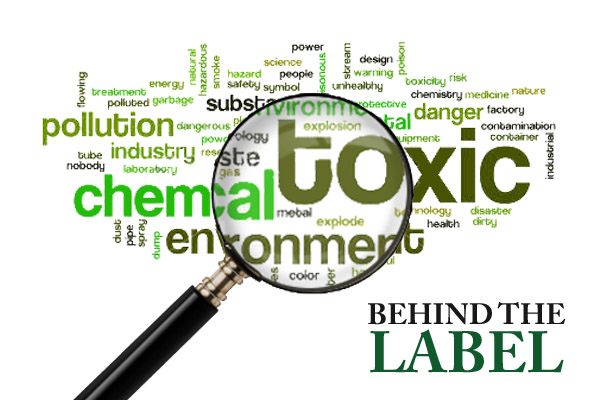Behind the Label: Olay Regenerist Replenishing Cream

‘40 is the new 30,’ proclaimed a recent ‘regenerist survey’ conducted on behalf of the UK’s number-one skin-care brand, Olay. The statement might have made a good contribution to Private Eye’s Neophiliacs column had not the implicit message of the survey been so disturbing. Our population is getting older. By the year 2010 around 40 per cent of female Europeans will be aged over 50. Of the more than 2,000 women surveyed by Olay, most spent an average of £200, and some a whopping £500, a year on antiageing treatments. Globally, the picture is much the same. The skin-care market is valued as being worth around £21 billion a year and rising, and anti-wrinkle creams make up a sizeable proportion of sales. Panic buying is the only reasonable way to describe it.
Most of today’s anti-ageing formulas boast sophisticated technology and unique ingredients. But at the most basic level there is very little difference between them. What is more, many contain ingredients that can accelerate skin damage and which may even have more serious health implications over the longer term.
Regenerist is Olay’s top brand. It’s costly but claims to ‘harness the latest peptide technology in an exclusive amino-peptide complex’. The product needs to be well absorbed, but that’s not much of a challenge as facial skin is thinner than skin elsewhere and Regenerist contains penetration enhancers to help the process along. The effect is superfi cial and temporary, however, lasting only as long as you keep using the product.
Regenerist contains the usual range of skin irritants, strong perfumes and colours. Full safety data appear to be lacking for some of its ingredients. However, it does contain carcinogenic acrylamide, triethanolamine (which can form cancer-causing oily compounds called nitrosamines) and Teflon (recently dubbed by environmentalists as the ‘new DDT’). Regenerist also contains a range of ultraviolet filters, enough to have a potential additive effect in the process of skin damage. Sun-screens have become de rigueur in anti-wrinkle formulas, almost to the point of insanity: scan the label of some night creams, and you will find UV filters in these as well.
The British facial skin-care market generated sales of £478m last year. Olay (owned by household products giant Proctor & Gamble) claims nearly 19 per cent of this market, more than double the share of its nearest competitor, L’Oreal. According to Olay’s figures, four Regenerist products are sold in the UK every minute.
Sidebar: Ingredients
Butyl methoxydibenzoylmethane (B-MDM) (also known as avobenzone)
Purpose: Sun-screen.
Adverse Effects: Skin rashes, allergic reactions and inflammation: BMDM is a photo allergen, which means sunlight triggers the response; questionable stability in the sun means B-MDM may break down into chemicals that inhibit the skin’s natural defences against sunlight.
Dimethicone Synthetic
Purpose: silicone-based moisturiser; film former.
Adverse Effects: Skin irritation. Film formers can make skin feel smooth, but, because they do not allow the skin to breathe, they may exacerbate skin irritation caused by sweat or other substances.
Polyacrylamide
Purpose: Thickener.
Adverse Effects: Carcinogenic. Acrylamide can be absorbed through unbroken skin. Animal studies have led to its being categorised as a probable cause of cancer in humans.
Ethylhexyl salicylate (also known as octyl salicylate)
Purpose: Sun-screen.
Adverse Effects: Skin irritant; penetration enhancer; some salicylates have hormone-disrupting potential; people sensitive to aspirin may find they are also allergic to this.
Triethanolamine
Purpose: Surfactant; emulsifier; dispersant; pH adjuster.
Adverse Effects: Contact dermatitis; may form carcinogenic nitrosamines during storage, on the skin or in the body after absorption; liver and kidney damage has been observed in animals after chronic exposure.
PTFE (polytetrafluoroethylene) (also known as Teflon)
Purpose: Film former; skin ‘improver’.
Adverse Effects: Carcinogenic; birth defects; weakens the immune system. Perfluorinated chemicals are persistent, and have been found in the blood of some 90 per cent of US citizens, and in some of them at levels as high as those found in factory workers.
Ammonium polyacrylate
Purpose: Dispersant.
Adverse Effects: May be contaminated with impurities (eg, acrylic acid, methacrylic acid, 2-ethylhexyl acrylate) linked to cancer or other significant health problems.
Disodium EDTA
Purpose: Preservative; anti-oxidant.
Adverse Effects: Irritating to eyes and skin; penetration enhancer: alters skin structure, allowing harmful chemicals to penetrate deeper into the skin and reach the bloodstream.
PEG-100
Purpose: Stearate Emulsifier.
Adverse Effects: May contain impurities linked to breast cancer – eg, 1,4-dioxane, ethylene oxide.
Ethylparaben, methylparaben, propylparaben
Purpose: Preservatives.
Adverse Effects: Skin irritation, contact dermatitis, contact allergies; oestrogen mimics. Environmental oestrogen mimics have been linked to breast cancer.
Parfum
Purpose: Fragrance
Adverse Effects: Contact dermatitis; respiratory irritant; asthma; nervous system disruption – eg, headache, mood swings, depression, forgetfulness and irritation; can contain artificial musks, which are hormone-disrupting, livertoxic and neurotoxic.
CI 16035, CI 19140
Purpose: Colourants
Adverse Effects: Have both respectively been associated with lymphatic tumours and allergic reactions in animals.
Sidebar: Alternatives
No external treatment will be as effective as maintaining a healthy lifestyle. If you are going to use cosmetics, try these:
- Barefoot Botanicals (www.barefoot-botanicals.com)
- Essentially Yours (www.essentially-yours.co.uk)
- Green People (www.greenpeople.co.uk)
- Higher Nature (www.highernature.co.uk)
- Weleda (www.weleda.co.uk)
- Aubrey Organics (www.aubrey-organics.com): Available in the UK from Au Naturel (0800 0851 697)
- Neal’s Yard (www.nealsyardremedies.com)
- Jason (www.jason-natural.com)
- Rio Health (www.riohealth.co.uk)
- Mybeingwell.com (www.mybeingwellcom)
- Earthbound Organics (www.earthbound.co.uk)
- Purenuffstuff (www.purenuffstuff.co.uk)
- Akamuti (www.akamuti.co.uk)
- Primavera Aromatherapy (www.primavera.co.uk)












